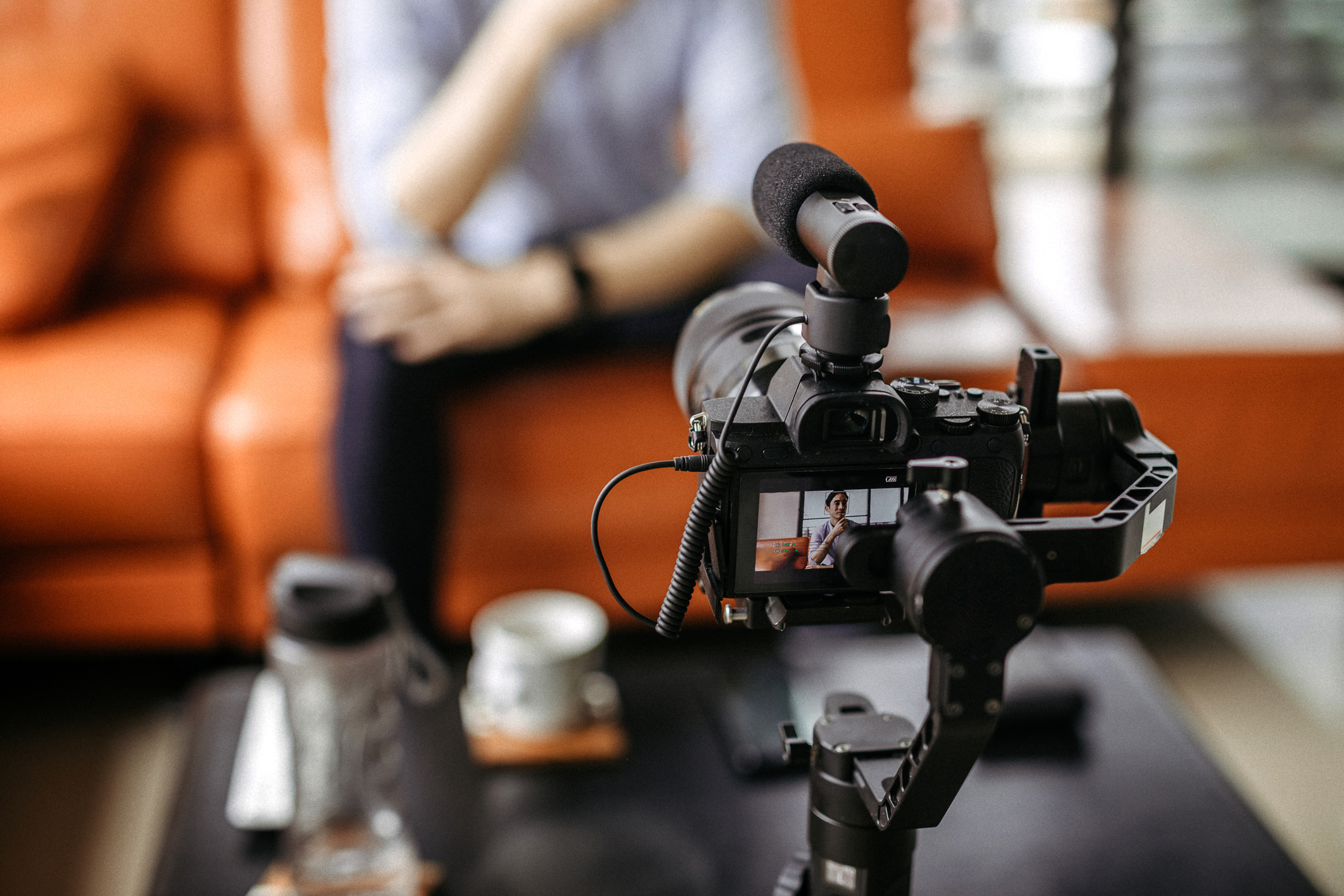The Importance of Legal Video Clip Depositions in Modern Legal Services: What You Need to Know
Lawful video clip depositions have come to be crucial in today's legal landscape. They supply a multidimensional view of witness statements that traditional records just can not match. By catching both non-verbal and spoken interaction, these depositions improve the general understanding of a witness's reliability. The effectiveness of video clip depositions hinges on various factors, consisting of conformity with legal criteria and best methods. Exploring these aspects reveals their real importance in modern legal services
What Are Lawful Video Clip Depositions?
Lawful video depositions work as an important tool in the lawsuits procedure. They involve taping witness testimonies in a video format, capturing both verbal and non-verbal communication. This approach enables attorneys to record the demeanor, expressions, and responses of witnesses, providing a richer context for the testament. Generally carried out in a controlled atmosphere, these depositions are led by attorneys that ask inquiries while a court reporter records the dialogue. The resulting video can be vital for trial preparation, as it enables lawyers to examine the reputation of witnesses and improve their approaches. Furthermore, lawful video clip depositions can be made use of in numerous lawful contexts, ranging from civil disagreements to criminal instances. The acoustic and visual elements of video clip depositions boost the presentation of proof, making it a crucial component in the contemporary legal landscape. Overall, they contribute considerably to the performance and efficiency of lawful procedures.

Advantages of Video Clip Depositions Over Standard Approaches
Video depositions provide countless advantages compared to conventional techniques of taking witness statements. One significant advantage is the capacity to catch both visual and audio components, supplying an extra detailed record of the witness's statements. This dual format enhances clarity and enables lawyers to reference details subtleties throughout test preparation. Additionally, video clip depositions help with remote participation, making it simpler for witnesses that might be unavailable for in-person looks due to geographical constraints or health and wellness issues.Moreover, video depositions can expedite the overall deposition procedure, reducing the time and costs associated with travel and logistics. They likewise improve availability, as tape-recorded depositions can be quickly shared amongst legal groups and referenced at any time. This ease adds to far better case administration and preparation. In general, video clip depositions stand for a contemporary, reliable method to collecting witness testimonies, straightening with the progressing demands of the legal profession.
The Function of Body Language and Tone in Testimonies

In legal video depositions, body movement and tone play essential functions in communicating a witness's credibility and reliability. Nonverbal hints can provide understandings right into a witness's emotion, affecting just how their statement is regarded. Comprehending the effect of these elements is important for lawyers and jurors alike when reviewing the reliability of a testament.
Nonverbal Communication Insights
While spoken communication is usually emphasized in legal testaments, nonverbal hints such as body movement and tone play a necessary function in communicating reputation and feeling. Onlookers of depositions might note that a witness's stance, motions, and face expressions can considerably influence perceptions of dependability. For example, constant eye get in touch with might signal self-confidence, while preventing gaze might recommend deceit or discomfort. The tone of voice-- its pace, pitch, and volume-- can present feelings of genuineness or uncertainty. Lawyers need to be in harmony with these nonverbal signals, as they commonly supply critical context that enhances spoken words. Recognizing these subtleties can boost the performance of depositions and influence the result of legal process.
Emotional Tone Impact
The psychological tone communicated throughout legal testaments significantly affects just how a witness is regarded. Body movement, singing inflections, and faces play important roles fit the story of a testament. A witness exhibiting self-confidence via steady eye contact and a calm tone can instill a feeling of dependability and interaction. Conversely, indicators of stress and anxiety, such as fidgeting or an unstable voice, may lead to skepticism concerning their account. The subtleties of psychological expression can influence the interpretation of truths, making it necessary for legal specialists to acknowledge these cues. In video depositions, the aesthetic and acoustic elements incorporate, emphasizing the value of emotional tone in communicating sincerity and reliability within the legal procedure.
Integrity and Credibility
An important variable in establishing trustworthiness and reliability during statements depends on the witness's body language and intonation. Viewers often rely upon non-verbal hints-- such as eye get in touch with, pose, and motions-- to analyze a witness's genuineness. A witness who preserves eye contact and displays open body language may be perceived as even more honest and dependable than one who avoids eye call or appears closed off. Furthermore, tone of voice plays a vital function; a steady, tranquil tone can enhance the integrity of the statement, while variations in pitch or quantity might increase questions. Ultimately, the mix of body movement and vocal tone substantially affects how a witness's statements are obtained and translated in a lawful context.
Ideal Practices for Carrying Out Video Clip Depositions
Conducting video depositions needs careful planning and implementation to guarantee a effective and clear discussion of testament. It is essential to choose a quiet, well-lit place to decrease disturbances and secure optimal video clip quality. The devices ought to be tested beforehand, including electronic cameras, microphones, and lighting, to avoid technical problems throughout the deposition.Next, events involved need to assess the format and treatments beforehand, making sure that everybody comprehends their functions. The deponent needs to be informed on the process, including exactly how to react clearly and concisely.Additionally, maintaining a specialist temperament throughout the session is vital. This consists of avoiding speaking over one an additional and validating that all inquiries are guided suitably. It is crucial to record the deposition in a style that permits for simple playback and evaluation, maintaining the stability of the testimony for future use.
Legal Factors To Consider and Compliance Issues
How do legal factors to consider and compliance problems affect the efficiency of video depositions? Attorneys have to navigate a complex landscape of guidelines, making certain that video depositions follow jurisdictional rules and requirements. Compliance with regulations worrying privacy, approval, and videotaping techniques is important. For example, obtaining specific permission from all events entailed is essential to prevent legal repercussions.Additionally, the admissibility of video proof in court can depend upon compliance with step-by-step requirements. Making certain that the equipment utilized satisfies technical standards is likewise crucial, as poor high quality can undermine the deposition's reliability.Moreover, lawyers should recognize any particular state regulations that govern video clip depositions, as these can vary significantly. Failing to resolve these considerations can not only endanger the stability of the deposition however additionally impact the overall instance strategy, inevitably impacting the client's lawful results.
How Video Clip Depositions Impact Jury Understanding
While video depositions can act as effective devices in legal procedures, their impact on court understanding is significant. The visual and acoustic components of video recordings offer jurors with an extra comprehensive understanding of witness demeanor, integrity, and emotional feedbacks. This multimedia technique can improve the jurors' capability to evaluate the integrity of statement compared to standard text-based transcripts.Moreover, video clip depositions enable jurors to observe body movement, tone of voice, and face expressions, all of which can impact their analysis of the witness's declarations. The visibility of a witness on display can go to this web-site humanize them, promoting empathy and connection, which might guide jurors' point of views. Conversely, a witness that appears incredibly elusive or unreliable on video clip might bring about unfavorable perceptions that influence a court's decision. Ultimately, the dynamic nature of video depositions plays a crucial duty fit how jurors translate evidence and reach their decisions.
The Future of Video Clip Depositions in Legal Technique
As advancements in innovation remain to improve the lawful landscape, the future of video clip depositions is positioned for substantial advancement. Innovations such as expert system, digital truth, and boosted video clip conferencing devices are expected to simplify the deposition process and improve access. Lawyers may utilize AI-driven analytics to examine witness trustworthiness and situation strength more effectively.Moreover, the integration of online fact might permit courts to experience immersive simulations of depositions, giving much deeper context and understanding. In addition, the fad toward remote depositions is most likely to continue, offering better adaptability for customers and attorneys alike.As remote job comes to be significantly normalized, video depositions will likely become basic technique, lowering costs and time constraints related to traditional approaches. On the whole, these technological developments assure to enhance the effectiveness, performance, and access of video depositions in legal practice, ultimately changing exactly how attorneys get ready for trial.
Frequently Asked Inquiries
Exactly How Much Do Legal Video Depositions Typically Expense?

Can Video Clip Depositions Be Utilized in Any Sort Of Case?
Video depositions can be utilized in various types of cases, consisting of civil, criminal, and family members regulation. Their adaptability permits attorneys to present witness testimonies efficiently, adapting to the specific demands of different legal circumstances.
What Equipment Is Needed for a Video Deposition?
To perform a video clip deposition, crucial tools includes a check my reference top notch video camera, microphone, lighting, and a reliable recording gadget. Additionally, a computer system with modifying software application might be essential for post-production and formatting the final video clip.
How much time Does a Typical Video Clip Deposition Last?
A common video clip deposition lasts in between two to 4 hours, depending upon the intricacy of the case and the variety of inquiries postured. Prolonged sessions may take place, however breaks are usually integrated for participant convenience.

Are Video Clip Depositions Admissible in Court?
Video clip depositions are normally admissible in court, provided they abide by lawful standards and regulations of evidence. Their usage improves clarity and protects witness testament, aiding in the judicial process throughout hearings and trials. Legal video depositions have actually become necessary in today's lawful landscape. Furthermore, legal video depositions can be made use of in numerous legal contexts, ranging from civil conflicts to criminal situations. Furthermore, video depositions assist in remote engagement, making it less complicated for witnesses that might be unavailable Check Out Your URL for in-person looks due to geographical restraints or wellness issues.Moreover, video clip depositions can quicken the total deposition procedure, lowering the time and expenses connected with travel and logistics. Making certain that the tools utilized fulfills technical requirements is also essential, as poor quality can threaten the deposition's reliability.Moreover, attorneys have to be mindful of any kind of specific state regulations that govern video clip depositions, as these can differ considerably. Furthermore, the fad toward remote depositions is most likely to persist, supplying higher versatility for clients and lawyers alike.As remote job becomes increasingly normalized, video depositions will likely become conventional method, decreasing expenses and time restrictions linked with conventional approaches.